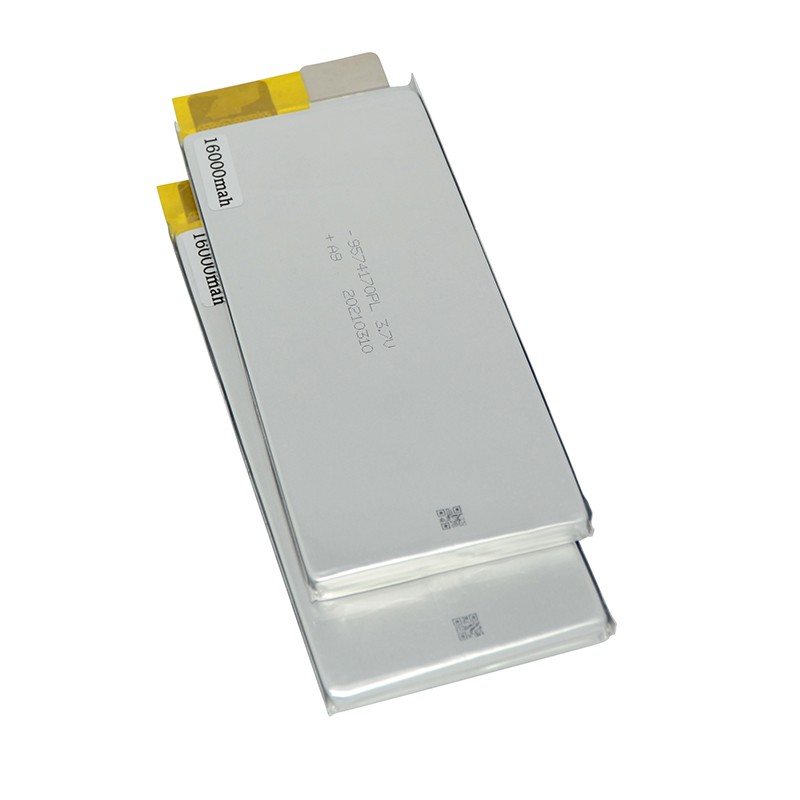Characteristics and Construction of Lipo Battery Single Cells
2024-07-17
A LiPo (Lithium-Polymer) battery single cell refers to a single unit or individual cell within a larger LiPo battery pack. LiPo batteries are widely used in various applications due to their high energy density, lightweight nature, and ability to deliver high currents. Here’s an overview of a LiPo battery single cell:
Characteristics and Construction:
1. Chemistry:
- Lithium-Polymer (LiPo): A type of rechargeable battery that uses a lithium-ion technology where the electrolyte is in gel or polymer form, allowing for flexible and lightweight packaging.
2. Cell Structure:
- Anode and Cathode: Like all lithium-based batteries, LiPo cells have a lithium cobalt oxide (LiCoO2) cathode and a graphite anode.
- Separator: A thin permeable membrane that keeps the cathode and anode separate while allowing the flow of ions.
- Electrolyte: A gel or polymer electrolyte that facilitates ion movement between the cathode and anode during charge and discharge cycles.
3. Voltage and Capacity:
- Voltage: A single LiPo cell typically operates at a nominal voltage of 3.7 volts.
- Capacity: Measured in milliampere-hours (mAh) or ampere-hours (Ah), indicating the amount of charge a cell can store and deliver.
4. Form Factor:
- LiPo cells come in various shapes and sizes, commonly used in cylindrical or prismatic formats depending on the application.
Applications:
- Consumer Electronics: Used in smartphones, tablets, laptops, and portable electronic devices due to their high energy density and lightweight properties.
- RC Hobby and Drones: Popular in radio-controlled vehicles, drones, and UAVs (Unmanned Aerial Vehicles) for their high discharge rates and compact size.
- Medical Devices: Used in portable medical equipment and devices requiring reliable power and compact size.
- Electric Vehicles: Increasingly used in electric vehicles (EVs) and electric bicycles (e-bikes) for their high power output and energy efficiency.
Advantages:
- High Energy Density: Provides more energy storage capacity per unit weight compared to other rechargeable batteries.
- High Discharge Rates: Capable of delivering high currents required by power-hungry devices and applications.
- Lightweight: Suited for applications where weight is a critical factor, such as portable electronics and aerial vehicles.
Considerations:
- Safety: LiPo batteries require careful handling and charging to prevent overcharging, overheating, and potential fire hazards.
- Protection Circuitry: Many LiPo cells include built-in protection circuitry to monitor voltage, temperature, and current, ensuring safe operation.
- Storage: Store LiPo cells in a cool, dry place at recommended storage voltage to prolong their lifespan and maintain performance.
LiPo battery single cells are versatile power sources used across a wide range of industries and applications, offering high energy density, lightweight construction, and efficient power delivery. Their continued development and adoption in technology contribute to advancements in portable electronics, transportation, and renewable energy sectors.



